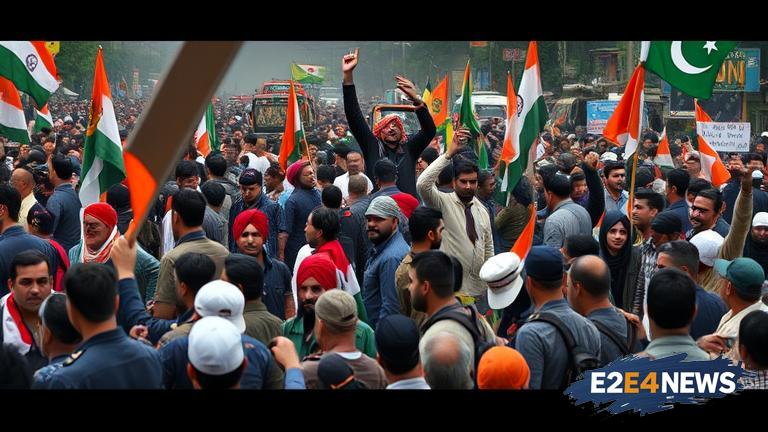The Kashmir dispute has been a longstanding issue between India and Pakistan, with both countries claiming sovereignty over the region. Recently, anti-India rallies have erupted in Pakistan-administered Kashmir, with protesters demanding a resolution to the disputed status. The rallies, which have been ongoing for several days, have drawn large crowds and have been marked by chants of ‘Azadi’ or freedom. The protesters are calling for the right to self-determination and an end to Indian rule in the region. The Kashmir dispute has its roots in the partition of India and Pakistan in 1947, when the region’s ruler, Hari Singh, chose to accede to India. However, the majority of the population in Kashmir is Muslim, and many have long felt a sense of affinity with Pakistan. Over the years, the dispute has led to numerous conflicts and skirmishes between Indian and Pakistani forces, resulting in significant loss of life and displacement of people. The current rallies in Pakistan-administered Kashmir are seen as a manifestation of the deep-seated frustration and anger among the population. The protesters are demanding that the international community take notice of their plight and intervene to resolve the dispute. They are also calling for an end to human rights abuses in Indian-administered Kashmir, where there have been reports of torture, disappearances, and extrajudicial killings. The Indian government has responded to the rallies by accusing Pakistan of fomenting unrest in the region. However, the Pakistani government has denied these allegations, saying that it is simply supporting the right of the Kashmiri people to self-determination. The United Nations has called for calm and restraint in the region, and has urged both India and Pakistan to engage in dialogue to resolve the dispute. The Kashmir dispute has significant implications for regional and global security, and a resolution is seen as essential to preventing further conflict and instability. The international community is watching the situation closely, with many calling for a peaceful and diplomatic solution. The European Union has expressed concern over the situation, and has urged both sides to engage in constructive dialogue. The United States has also weighed in, calling for calm and restraint. As the situation continues to unfold, it remains to be seen how the dispute will be resolved. However, one thing is clear: the people of Kashmir will not remain silent, and their demand for freedom and self-determination will continue to be heard. The rallies in Pakistan-administered Kashmir are a testament to the enduring spirit of the Kashmiri people, who have faced decades of oppression and hardship. Despite the challenges, the protesters remain determined and resolute, and their message is clear: they will not be silenced, and they will not be ignored. The Kashmir dispute is a complex and multifaceted issue, with deep historical and cultural roots. It is a dispute that has been marked by violence, bloodshed, and human suffering. However, it is also a dispute that has the potential to be resolved through peaceful and diplomatic means. As the international community watches, it is essential that both India and Pakistan engage in constructive dialogue, and work towards a solution that respects the rights and aspirations of the Kashmiri people. The people of Kashmir deserve nothing less than freedom, justice, and self-determination. It is time for the international community to take notice, and to work towards a resolution that brings peace, stability, and prosperity to the region.
